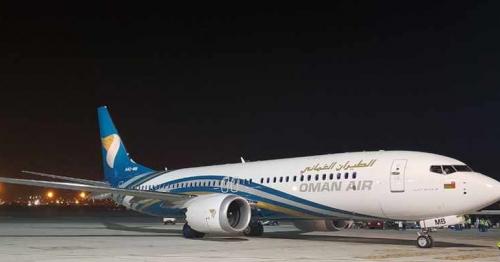Jump in Omanis seeking foreign life partners
Muscat: Over 1,000 Omani citizens applied to get married to foreign nationals between January 2018 and March 2019, the Ministry of Social Development (MoSD) has announced.
Most of these applicants chose to have their weddings abroad, with the ministry’s statistical bulletin revealed that in just the first quarter of this year, the number of applications for marriage to foreigners exceeded 50 per cent of the total applications received last year. While 2018 saw 696 such applications, as many as 390 applications have already been filed in the first three months of 2019. Speaking to Times of Oman, a ministry official said that many aspiring brides and grooms filed applications for marriage without being completely aware of the country’s laws and regulations, or without weighing the pros and cons of their decision.
Rise in dowries
“Many of them say that the reason they go abroad is the rise in dowries in the Sultanate, or other misconceptions about marriage. But after clarifying these ideas, many people withdraw the application,” he said. Men make up the majority of the Omani citizens marrying foreigners, according to data released by the National Centre of Statistics and Information.
Of the 339 successful applicants who got married to foreigners in 2018, only 61 were women. The number of cross-border weddings in 2016 stood at 328. The uneven gender trend in foreign marriages continues in 2019 with only 29 of the applications received till March this year being registered by women. The ministry official said that the basis of a marriage should be the right choice of partner, not his or her nationality.
“The role of the ministry in sitting with the applicant is to know their motives and provide advice and guidance on the circumstances of marriage from abroad and the challenges and obstacles they will face,” he added.
The Ministry of Social Development said that Muscat topped the list with 103 applications in the first quarter of 2019, followed by Al Dakhiliyah with 77 applications. Meanwhile, 72 applications were submitted from North Al Batinah followed by South Al Batinah with 29. Ahmad Al Shabibi, a family counselling specialist at MoSD, said that even as the number of such applications had increased greatly in the last 10 years, the ministry studied these marriage applications to understand the applicant’s social, health, and housing situations.
“According to our analysis of the applications, a majority of cases are those of people who are divorced or widowed,” Al Shabibi said.
Ministry data revealed that most of the applicants were between 30 to 49 years of age, with a significant portion of them (102 male applicants) being divorcees.
“When we asked them why they wanted a partner who was an expat, the answers varied between the refusal of Omanis to marry a divorcee or men being unwilling to repeat the experience of marrying an Omani woman,” he added. “For most unmarried people, their application states that their reason for getting married to an expatriate is due to misconceptions about being married to an Omani, or because he/she has worked with colleagues from other nationalities and has decided to marry someone from abroad,” he explained.
According to Decision Number 92/93 of the Ministry of Interior — which regulates the marriage of Omanis to foreigners — an Omani man who wants to get married to a foreigner should be at least 45 years of age and must first apply through the nearest Wali’s (Governor’s) office, after which his case shall be registered with the Ministry of Interior. It will then be studied by the Ministry and other agencies, including the Royal Oman Police, the Ministry of Social Development, and the Ministry of Health.
MoSD data also revealed that 20 applications were canceled in the first quarter of 2019 had been returned to the Wali. According to the law, an Omani may only marry a foreigner for social and health reasons. The applicant should be able to cover the cost of marriage, appropriate housing, as well as costs related to family support. A subsequent marriage to an Omani woman is also prohibited unless the man’s wife is unable to fulfill marital obligations.
“People over the age of 70 also request weddings to expatriates. These cases are evaluated from a social point of view, mostly to make sure that an elderly man does not want to marry just to have a wife to look after him,” Al Shabibi noted. He observed that some septuagenarians sought to marry 20-year-olds. “But it will not help the family settle down. So we advise them to marry those who suit them in age. If the bride is not suitable for marriage, we advise them that it is better to receive care from the family,” the Ministry official said.
He said that the Ministry’s cohesion programme guided people in choosing the right partner, both inside and outside the Sultanate, in order to build strong and cohesive families. Trained specialists conduct workshops and counselling sessions for potential couples.
The Ministry of Interior’s Decision No. 238/2014 amended the regulations governing the marriage of Omanis to non-Omanis. The decision states: “The applicant has to pay OMR5 for the filing of the marriage application. The applicant also has to pay OMR20 for the issuance or renewal of the marriage license. For the issuance of the marriage evidence certificate, the applicant also has to pay OMR20 for any change in the marriage certificate.”
If the elderly applicant is not suitable for marriage, we advise them that it is better to receive care from the family,” the ministry official said. He said that the Ministry’s has programme called “Tamasuk” means cohesion which guided people in choosing the right partner, even from inside and outside the Sultanate, in order to build strong and cohesive families. Trained specialists conduct workshops and counselling sessions for potential couples.
tag: omani , oman , foreign , national , ministry , social , omanday
Share This Post






